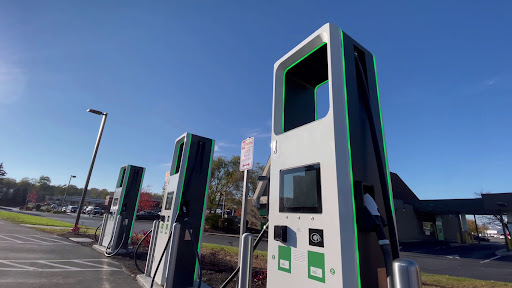Ford Motor Company recently announced an ultimatum to dealers wanting to be electric vehicle dealers: Become certified to sell fully electric vehicles and invest in the infrastructure necessary to sell them, or you’re out. The ultimatum can be met by way of one of two tiers. The higher tier will require dealers to invest up to $1.2 million for the installation of at least two fast-charging stations at each store. The lower tier will require dealers to invest in one fast-charging station at each store.
The program is set to begin January 1, 2024, and end at the close of 2026. Originally, dealers had until October 31, 2022, to opt in; however, that deadline has been extended to December 2, 2022. Dealers that do not opt into the program will have another opportunity in 2027. All dealers that opt in must agree to sell their vehicles at no-haggle prices within parameters set by Ford, and Ford will list those prices on their sales portal. Elite dealers will be able to have demo units and carry electric vehicle inventory; however, those on the standard tier will only be able to place a limited number of orders for purchases.
The Inflation Reduction Act expanded and added to the electric vehicle tax credits available to eligible auto dealerships. The Act gave rise to The Clean Vehicle Credit, a reconfigured and expanded version of the Qualified Plug-in Electric Drive Motor Vehicle Credit. In addition, the legislation expanded the Alternative Fuel Vehicle Refueling Property Credit to include eligible electric vehicle charging stations. These tax credits can help electric vehicle dealerships meet Ford’s demands.
Beginning January 1, 2023, fueling equipment, including electric vehicle charging stations installed through December 31, 2032, will be eligible for an Alternative Fuel Vehicle Refueling Property Credit of 30% of the cost or 6% in the case of property subject to depreciation (not to exceed $100,000).
This credit cannot be used to cover permitting and inspection fees, and in order to get the full 30% credit, eligible projects must meet apprenticeship and prevailing wage requirements. In addition, the charging station must be installed in a location that meets specific census tract requirements. The location must be:
- a population census tract with a poverty rate of at least 20%; or
- a metropolitan and non-metropolitan area census tract with a median family income of less than 80% of the state’s median family income level.
Suppose a dealership meets these requirements, becomes certified and makes the full investment of $1.2 million. In this case, the dealership may qualify for an Alternative Fuel Vehicle Refueling Property Credit of $200,000 (limited to $100,000 per station), which brings the investment expense down to $1,000,000. If the dealership also receives a $290,000 federal tax benefit (at 29%) and a $70,000 assumed state tax benefit (at 7%), the out-of-pocket cost for the investment would be $640,000.
Additional electric vehicle-related grants and credits from states and utility companies may become available. The calculation and qualification for these credits is complicated. A careful analysis should be done before relying on receipt of the credit to help fund a project.
Contact Albin, Randall & Bennett
ARB’s Auto Dealership Advisory Services Team is here to help. We will monitor the situation closely as new guidance is issued pertaining to these credits. In the meantime, feel free to contact me if you have any questions.
by Barton D. Haag, CPA
Barton D. Haag joined ARB in 1996 and has been a principal with the firm since 2005. As the Practice Leader for ARB’s Auto Dealership Team, Barton provides financial accounting, income tax planning, and business advisory services for clients in the automotive and motorcycle dealership industries. He also works with closely-held businesses, many of which are family-owned.





